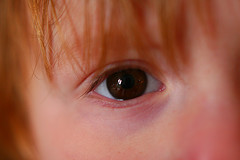 Questions of abuse and neglect are the tricky ones. Just like so many issues in life, they are vastly more complex than they seem at first. In the case of the children, whose bodies and brains are constantly developing, these complexities can span a broad array or disciplines.
Questions of abuse and neglect are the tricky ones. Just like so many issues in life, they are vastly more complex than they seem at first. In the case of the children, whose bodies and brains are constantly developing, these complexities can span a broad array or disciplines.
Enter The ChildTrauma Academy and its Senior Fellow Bruce D. Perry, M.D., Ph.D. The Houston, TX-based CTA describes itself as a not-for-profit organization that is “working to improve the lives of high-risk children through direct service, research and education.” Dr. Perry is an internationally recognized authority on children in crisis.
As a native New Orleanian, I must admit to being quite partial to the work Dr. Perry has done in the aftermath of Hurricane Katrina. The plight of our city’s children and the elderly was one quite evident to me from the start, and I think his work was important. This excerpt from Dr. Perry’s article, “The Real Crisis of Katrina,” applies not only to the child survivors of the Gulf Coast disasters, but also to children in general:
We know that traumatic experiences can result in a host of chronic, sometimes, life-long, problems. More than 35% of the children exposed to a single traumatic event will develop serious mental health problems such as post-traumatic stress disorder (PTSD). That is just the start, however. Children exposed to adverse experiences are at much greater risk for physical health problems throughout life; this includes heart disease, diabetes and hypertension. Traumatized children are at much greater risk for other emotional, social and mental health problems; and as these children grow into adults the risk follows them. Adults with childhood trauma have increased divorce rates, depression, post-traumatic stress disorder, alcoholism, drug abuse and dependence, school failure, and unemployment among many other problems. These children have a much higher probability of requiring the services of our expensive public systems throughout life; special education, child protection, mental health, health and criminal justice.
That makes perfect sense to me. I am in my 40’s, and I have certainly experienced a deterioration in several aspects of my physical health in the five years since Katrina. I’ve also seen the widespread symptoms of PTSD firsthand after the flooding. One can only imagine the effects of these stresses on a developing child, especially when the adults around that child are experiencing similar privations.
Dr. Perry’s article continues with an important message of hope:
And we also know that when traumatized children receive appropriate services, they can heal. We know that if traumatized children can live in safe, consistent, relationally-rich, and nurturing homes and communities they heal. Indeed, traumatic experience can provide a wisdom and strength that is impossible to get any other way. Yet this healing takes place and wisdom grows only when the child is safe, secure and her emotional needs have been met.
Dr. Perry suggests we prioritize funding for children at the same level we do for other crucial infrastructure. After all, our children are the infrastructure of our future.
Dr. Perry can also be seen in our debut feature-length documentary, It’s More Expensive To Do Nothing by HUMANE EXPOSURES films. You can also follow The ChildTrauma Academy on Twitter.
Source: “The Real Crisis of Katrina,” The Zero, The Official Website of Andrew Vachss, 2006
Image: ChildTrauma Academy Logo, copyright retained; fair use: reporting
Visit Us on Facebook: Humane Exposures Publishing , downTownUSA, Maggots in My Sweet Potatoes, It’s More Expensive To Do Nothing




 An oft recurring theme on the HUMAN
An oft recurring theme on the HUMAN Questions of abuse and neglect are the tricky ones. Just like so many issues in life, they are vastly more complex than they seem at first. In the case of the children, whose bodies and brains are constantly developing, these complexities can span a broad array or disciplines.
Questions of abuse and neglect are the tricky ones. Just like so many issues in life, they are vastly more complex than they seem at first. In the case of the children, whose bodies and brains are constantly developing, these complexities can span a broad array or disciplines.







